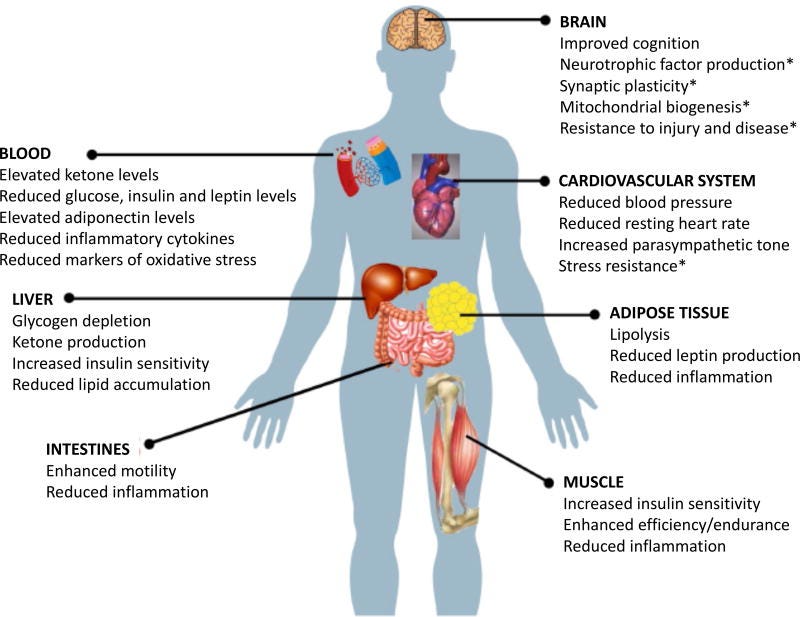The Newest Research on How Fasting Upgrades the Body by World Renowned Scientist Dr. Mark Mattson
More resilient cells and organs, slower aging, improves brain, reduced inflammation and blood pressure, a healthier heart, improved lipid metabolism, and improved gut microbiota. What's not to love?
No phase of the experience [of fasting] surprised me more than the activity of my mind: I read and wrote more than I had dared to do for years before.
—Upton Sinclair, The Fasting Cure, 1911
In today's post:
Dr. Mark Mattson is the former Chief of the Laboratory of Neurosciences at the National Institute on Aging Intramural Research Program. While there, he led a team of researchers who studied how intermittent fasting (IF) challenges the body in ways that cause it to positively adapt. These adaptations expand both lifespan and healthspan—the amount of time one remains healthy and active.
Dr. Mattson found that IF initiates the following adaptations:
Increases brain neuroplasticity, the ability of the brain to learn and adapt
Radically counteracts aging in the body
Makes cells and organs resistant to stress
Enhances insulin signaling which affects over 200 processes in the body
Improves cells’ and organs’ resilience and performance
Increases the number of mitochondria in cells (where respiration and energy-production processes occur)
Alters the existing mitochondria to become more efficient at producing power
Encodes proteins that enhance cells’ ability to repair damaged DNA, squelch free radicals, and recover from stress
Allows the body in the fed state to more properly utilize nutrients
Initiates tissue remodeling
Reduces blood pressure
Reduces abdominal fat
Reduces inflammation
Increases Heart Rate Variability (an important sign of healthspan)
Improves lipid (fat) metabolism
Radically improves the gut microbiota helping stem off autoimmune disease
[Above graphic taken from a paper Dr. Mattson wrote and published in the journal Obesity, Flipping the Metabolic Switch: Understanding and Applying Health Benefits of Fasting.]
December 26, 2019, was a monumental day for fasters everywhere when The New England Journal of Medicine, the world’s most prestigious medical journal, published Dr. Mark Mattson’s groundbreaking new paper summarizing his three decades of fasting research titled Effects of Intermittent Fasting on Health, Aging, and Disease.
So who is this Mark P. Mattson guy anyway?
He’s an adjunct professor of neuroscience at the Johns Hopkins School of Medicine.
He’s one of the most cited researchers on intermittent fasting (IF). This means that other researchers consider his work high quality and authoritative. The National Institute of Health considers him "one of the world’s top experts on the potential cognitive and physical health benefits of intermittent fasting"
Dr. Mark Mattson went on to expand his research into a book he released in 2022:
This book is a must-read for anyone fascinated by the body’s self-healing mechanisms enabled by fasting.
Mattson tells us in the preface:
During the past three decades, I and scores of scientists who have worked in my laboratory have discovered how cells in the brain, cardiovascular system, muscles, and other organs respond to intermittent fasting in ways that improve their performance and resilience.
Note: there is so much to cover from the book that I gave all of the positive brain adaptations their own post in: Fasting Keeps Your Brain Sharp and Reduces Anxiety.
Keep reading with a 7-day free trial
Subscribe to Fast Well | Feast Well to keep reading this post and get 7 days of free access to the full post archives.




